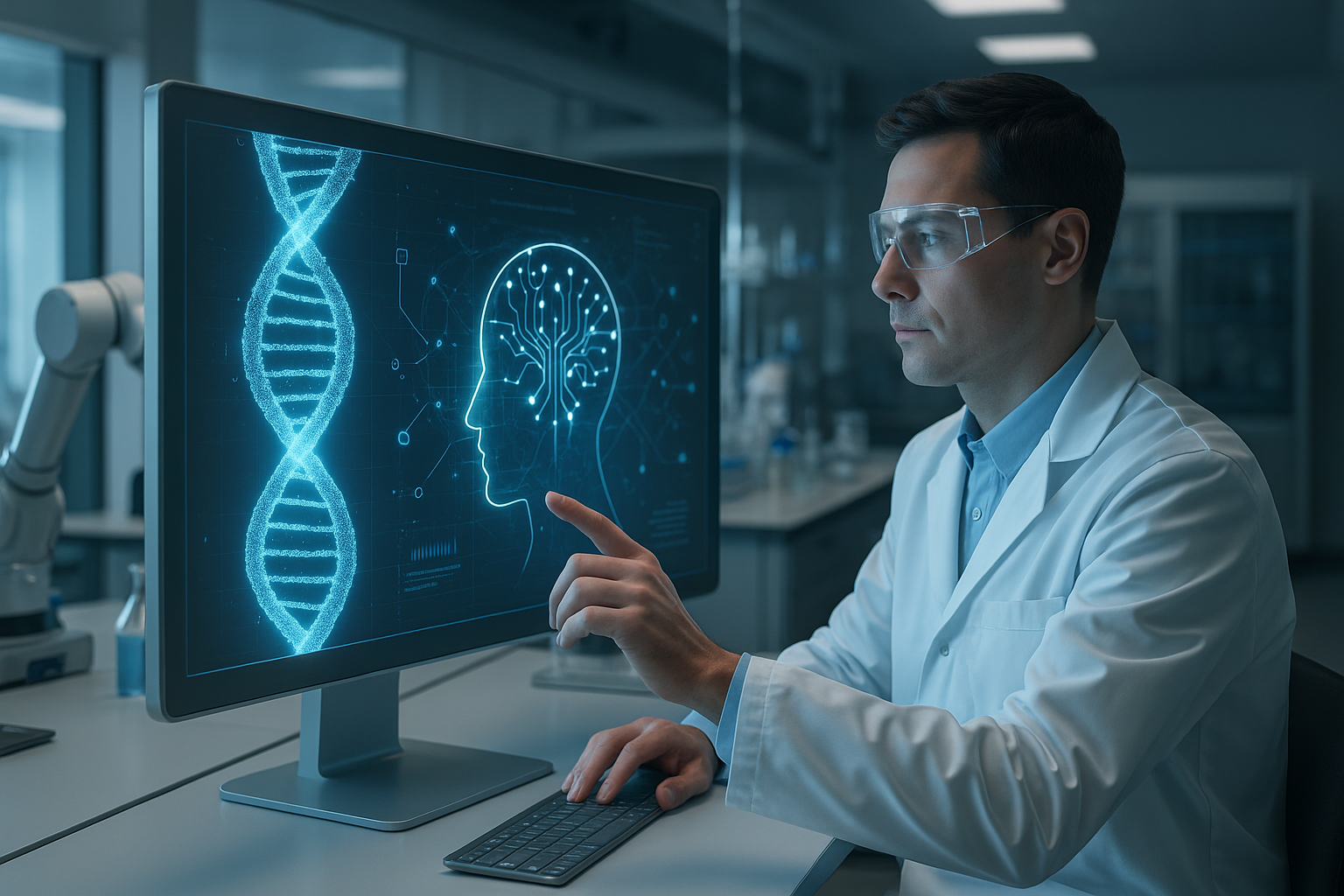AI and synthetic biology convergence sparks global biosecurity concerns
According to the author, the increasing accessibility of AI-driven bioengineering accelerates not just innovation but also the pace at which potential security threats emerge. The combination of open-source datasets, cloud-based AI platforms, and advanced laboratory automation has effectively democratized access to synthetic biology, raising concerns about accidental releases and intentional misuse.

The rapid convergence of synthetic biology and artificial intelligence (AI), referred to as SynBioAI, is transforming science, medicine, and industry, but it is also exposing critical gaps in global biosecurity and regulatory systems.
A new study, “Synthetic biology/AI convergence (SynBioAI): security threats in frontier science and regulatory challenges,” published in AI & Society, explores these risks in detail. Authored by Nik Hynek, the paper analyzes how the integration of AI into synthetic biology is accelerating innovation while simultaneously lowering barriers for misuse and creating complex governance dilemmas.
Accelerated Innovation and Emerging Security Risks
The study highlights how synthetic biology, powered by advanced AI systems, is reshaping fields ranging from drug discovery and agriculture to environmental management. AI-driven platforms now support everything from protein design and genome editing with CRISPR to fully automated biofoundries, significantly reducing the time and expertise needed for high-level bioengineering tasks.
However, this progress carries a darker side. By automating processes that once required years of specialized training, AI is enabling what the study terms “deskilling” - a reduction in technical barriers that could allow less experienced actors, including malicious entities or under-resourced labs, to carry out complex biological experiments. This creates new vulnerabilities in global biosecurity, where the same tools driving breakthroughs in healthcare and sustainability could also be leveraged to design harmful pathogens or other dangerous biological agents.
According to the author, the increasing accessibility of AI-driven bioengineering accelerates not just innovation but also the pace at which potential security threats emerge. The combination of open-source datasets, cloud-based AI platforms, and advanced laboratory automation has effectively democratized access to synthetic biology, raising concerns about accidental releases and intentional misuse.
Fragmented governance and global power imbalances
The research delves into the regulatory challenges posed by this convergence, revealing that current governance systems are fragmented and ill-equipped to address the unique risks associated with SynBioAI. Existing frameworks, such as the Biological Weapons Convention (BWC), World Health Organization guidelines, the European Union AI Act, and UNESCO’s ethical principles, were not designed to manage the pace or complexity of these emerging technologies.
This lack of coordination has created regulatory blind spots. Intangible elements, such as AI-generated genetic blueprints or digital models of pathogens, are not adequately addressed by existing treaties or laws. Hynek argues that without integrated frameworks, the rapid evolution of SynBioAI could outpace the ability of policymakers to enact effective oversight.
The study also points to geopolitical dynamics shaping the future of SynBioAI governance. Countries such as the United States and China dominate innovation pipelines and regulatory discourse, often prioritizing strategic and commercial interests over multilateral cooperation. This imbalance risks creating a patchwork of policies that leave critical gaps in global biosecurity while intensifying competition in a domain that demands collective action.
Toward adaptive and collaborative regulation
To address these challenges, the study calls for the development of adaptive, multi-layered governance frameworks capable of keeping pace with rapid scientific and technological advancements. Hynek proposes the creation of a dedicated SynBioAI forum, designed to facilitate dialogue between scientists, regulators, industry leaders, and civil society. This platform would aim to harmonize regulatory standards, enhance transparency, and establish proactive safeguards to prevent misuse.
Key recommendations include revising the Biological Weapons Convention to account for AI-enabled workflows, updating biosecurity protocols to manage intangible design data, and fostering greater international collaboration to ensure equitable access and oversight. By creating more responsive governance mechanisms, the global community could better balance the dual imperatives of innovation and security.
According to the paper, regulation must evolve from a reactive to a proactive approach, anticipating risks before they materialize. This includes continuous monitoring of advancements in AI and synthetic biology, scenario planning for potential misuse cases, and the integration of ethical considerations into research and development pipelines.
The road ahead
SynBioAI represents a frontier of scientific possibility with immense potential benefits. From accelerating drug development and combating climate change to revolutionizing industrial processes, these technologies hold the promise of transformative change. Yet, without effective governance, the same tools that promise solutions could create unprecedented risks.
The analysis makes it clear that addressing these challenges will require more than incremental policy updates. It will demand collaboration across borders, stronger engagement with the scientific community, and the establishment of flexible, adaptive regulatory frameworks capable of responding to the rapid pace of innovation.
The study also presses for inclusive dialogue, ensuring that voices from the Global South and underrepresented communities are part of the conversation. Equitable participation is essential not only for fairness but also for crafting robust and globally relevant frameworks to manage the risks associated with SynBioAI.
- FIRST PUBLISHED IN:
- Devdiscourse










